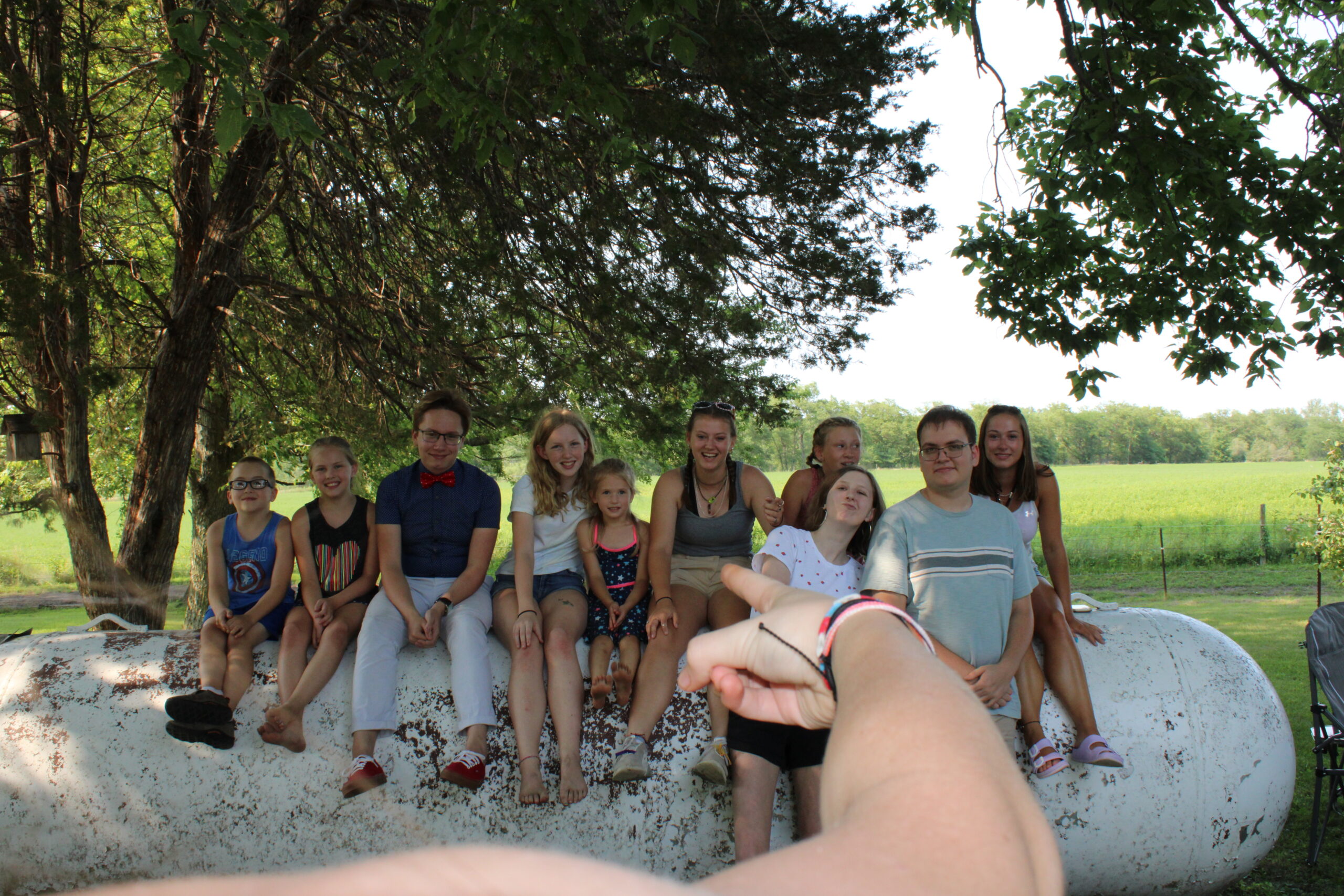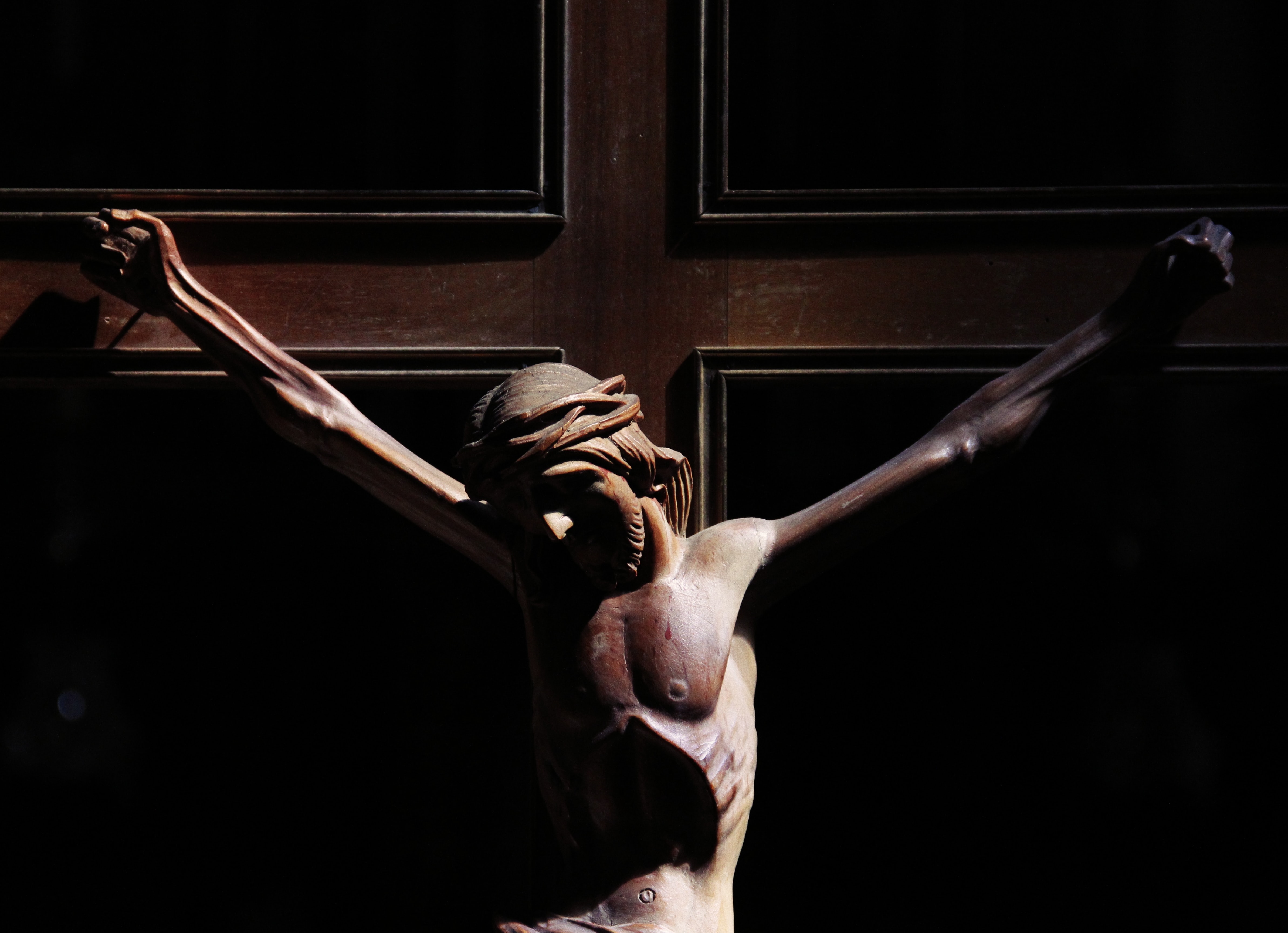On the Inside; On the Outside

An Original is Worth More than a Copy
Posted by Deacon Allen | Discipleship, Everyday Life | No Comments“Imitating Christ does not mean living a life like Christ, but rather living your own life as authentically as Christ lived his.” ~Henri J.M. Nouwen
We’ve all seen it or heard it before. It could have been in a scripture passage, a spiritual book, a church hymn, or even in a preached homily at Mass. The message was this: each and every one of us should strive to imitate Jesus.

Decisions, decisions, decisions. No matter where we turn in life, there’s a decision that needs to be made. What should I do today? What do I wear? What book should I read? What do I want to be when I grow up? Should I exercise or binge watch some TV series? And on and on.
According to the people who know about this kind of stuff, adults make 35,000 decisions every day. Crazy, right? And 226.7 of these decisions are about food alone! What should I eat today? Do I pick it up or have it delivered? Do I stick to my diet or snarf-down that piece of chocolate cake? And on and on. Our lives are filled with decisions. Read More

I’d like you to imagine this scene. You are in grade school standing with a group of your friends on the school playground. Two people emerge as captains and begin picking their teams. You stand there, waiting for your name to be called and to be chosen. What are some of the emotions that are running through your mind? Is it excitement in anticipation of your name being called? Is it anxiety and the stress of waiting? Is it doubt that maybe you don’t feel like you’re worthy of being chosen? Or is it fear, thinking to yourself, “Please don’t let me be picked last.” Finally, you’re picked. What were you feeling? Was it relief that you landed on a team? Were you hesitant because you weren’t sure of what was to come? Or were you filled with exuberance, ready to jump in and get started? I remember one time in grade school, there was a boy named Billy who had absolutely no athletic skill at all, and neither captain wanted him on their team. Eventually he was the last kid standing. When he was finally chosen, he didn’t reluctantly mosey over to his team because he was last. He was filled with such joy and excitement that he began yelling at the top of his lungs, “Woo hoo! Yeah! Alright! Let’s do this!” The rest of us kind of looked at each other in complete shock because we had never seen anyone so excited to be chosen. Read More

I’m a disciple of Jesus and I’ll tell you my view,
Of the events that took place, the events that are true.
These past few days were filled with such grief.
My heart’s filled with pain, denial, disbelief.
We had just shared a meal, of bread and wine alike,
When he said someone will betray him; it will happen tonight.
The mood suddenly changed, and Jesus felt distraught.
Something felt different; something was off.
The hour was approaching, it was happening at last.
He prayed in the garden that this cup of his should pass.
But it wasn’t about him, but about his Father’s plan.
We awoke to find out that his betrayer was at hand.
Jesus is gone, it’s so hard to conceive.
Yesterday was so painful, I still can’t believe.
It all happened so quickly, from dawn to mid-day.
To see how he suffered as he walked along the way.
He carried his cross, three times falling and stumbling,
But he carried it for us; never griping, never grumbling.
The people spit and they jeered as he passed along by.
They cursed and they shouted, “Let Jesus be crucified!”
They nailed him to a tree and hung him high in the air.
With a crown full of thorns, it just wasn’t fair.
In suffering he prayed, for all – not just a few,
“Father, forgive them, they know not what they do.”
He took his last breath and passed from this life,
I cried and I cried; I was filled with such strife.
His body was taken down and laid in a tomb.
A guard was at the entrance for fear of the Jews.
As I stand here and gaze at the stone-cold tomb
With tears in my eyes and my heart full of gloom.
I know that he told us that he would rise from the dead,
Yet I feel so helpless, confused, and mislead.
Jesus is dead, and what a beating he took.
The whippings, the scourging, the nails on the wood.
So how can he rise and come out of this rock?
Why am I doubting? I really must stop.
Though darkness surrounds me, in Jesus I do trust.
I believe what he told us, and believe, this I must.
He will overcome the grave; for this I am sure.
Because he loved me that much; for me, he endured.
Now I wait in anticipation for the miracle to arise,
To see his radiant glory before my very own eyes.
Jesus changed the world and our sin he set free.
He died out of love, and he did it all for me.

I love modern technology! Maybe this is because I have spent the bulk of my career surrounded by its bleeding edge innovations, but I am constantly in awe of the immense impact it’s had in our lives. However, it has been said that technology has exceeded our humanity. Well, I don’t know about that, but technology is super cool – especially if you know how to use it. Read More
There are many things in life that confuse me. For example, why does lemonade have imitation flavoring, but furniture polish contains real lemon juice? Why does “fat chance” and “slim chance” mean the same thing? If something “goes without saying,” why do people still say it? Why is it that if someone tells you that there are four billion stars in the universe you believe them; but if there’s a sign that says wet paint, you have to touch it to be sure? Some things just don’t make any sense. Read More

When I was in Cub Scouts many years ago, one of our big outings was to Eagle Cave in Wisconsin. My friend John and I were paired up to go on one of the more difficult cave hikes. As we stood in front of an extremely tight space that we needed to crawl through, we looked at each other with a sense of doubt. But John ventured right in. John, who was – shall we say – on the husky side, crawled on the ground and squeezed his way within the tight passageway – where he got stuck. After shifting and maneuvering for several minutes, he eventually got unstuck and made it through. Then it was my turn, and a sudden feeling of panic came over me. Now, I’m not one who is afraid of small, cramped spaces or even what might be crawling on the ground in a dark, slimy cave; but after watching John struggle, I was terrified to go any farther. I was afraid of taking a risk. Luckily, John kept me calm by saying everything was going to be fine, and that there’s no way that I would get stuck. (I was as skinny as a rail at that time.) And if I did get stuck, he said that he would be right there to help me. Well, I easily bellied through and when I emerged out of that tiny crevice, I was rewarded by seeing a vast and beautiful cavern. If I had not taken that risk, I would have not experienced the beauty of the cave. Read More

“Whoever wishes to come after me must deny himself, take up his cross, and follow me.”
In that one, single sentence, Jesus sums up what it really means to be a Christian. There is so much depth in that sentence that we need to unpack it phrase-by-phrase to fully understand its meaning in our lives. Let’s look at the first point, one “must deny himself.” Read More

Today is the feast of St. Vincent, Deacon and Martyr. Vincent was ordained a deacon by his friend and bishop St. Valerius. The Roman emperors had published their edicts against the clergy in 303, so Vincent and Valerius were imprisoned in Valencia, Spain. They seemed to thrive on suffering, for hunger and torture failed to break them.
Valerius was sent into exile, and the Roman governor now turned the full force of his fury on Vincent. Many types of torture were tried, but all failed.
Finally, the governor suggested a compromise. If Vincent would give up the sacred books to be burned according to the emperor’s edict, he would stop the torture. But Vincent would not give in, so the torture continued. Vincent remained courageous, and the torturer couldn’t take it anymore. So, Vincent was thrown into a prison cell and ended up converting the jailer. The governor wept with rage; but strangely enough, ordered the prisoner to finally be given some rest.
The faithful came to visit Vincent, but he was to have no earthly rest. For when they finally settled him on a comfortable bed, Vincent fell into his eternal rest.
Even in the midst of turmoil, God sticks with us and uses those challenges that we encounter to shape us and make us better disciples. As it says in the psalm, ‘In God I trust; I shall not fear. When we remind ourselves of this, we no longer see our setbacks as failures and our problems as obstacles; we see them as moments when God is working in us, strengthening us for our earthly journey. We will be rescued from our stumbling. All we have to do is trust in the Lord with all our hearts. For when we trust in the Lord, we have nothing to fear.





